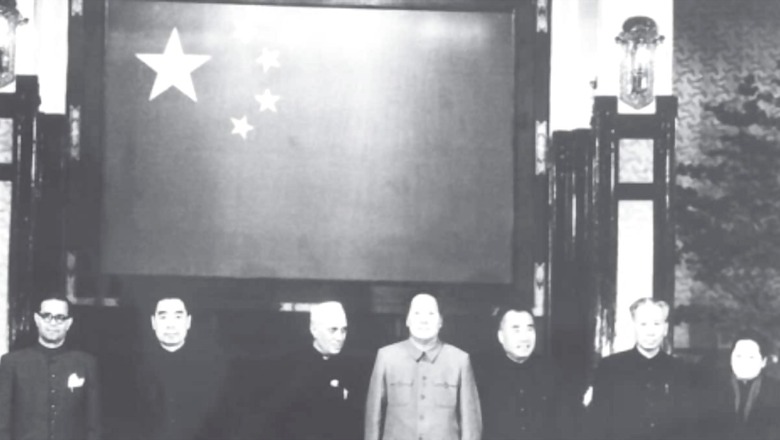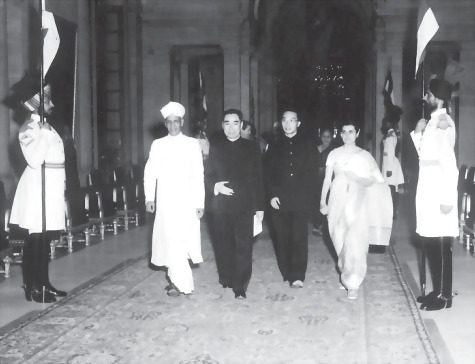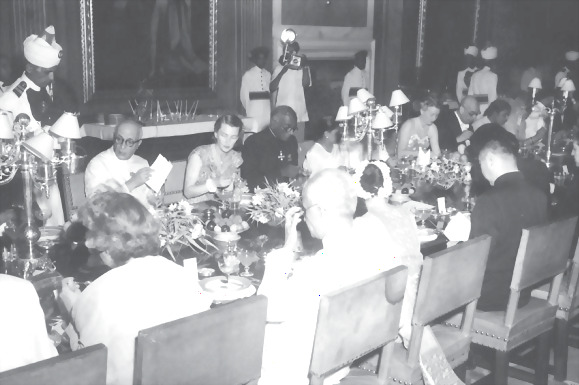
views
Seventy years ago, as the post-World War era sought a new framework for international relations towards peace and harmony, the Five Principles of Peaceful Coexistence, also known as the “Panchsheel”, emerged as a beacon of hope.
Formally outlined in 1954, these Five Principles of Peaceful Co-existence were articulated during an Agreement on Trade and Intercourse between the Tibet region of China and India. These principles formed part of the legacy of the then Prime Minister Jawaharlal Nehru and his Chinese counterpart Zhou Enlai in their unsuccessful quest to find a solution to the vexed boundary issue that affects India-China ties to date.
What are the Panchsheel principles?
- Mutual respect for each other’s territorial integrity and sovereignty,
- Mutual non-aggression,
- Mutual non-interference,
- Equality and mutual benefit, and
- Peaceful co-existence.

Bandung Conference
In a Joint Statement in June 1954, Zhou Enlai and Jawaharlal Nehru elaborated on Panchsheel, hoping not only to shape bilateral relations but also to serve as a foundational framework for international peace and security. This vision gained international recognition when Panchsheel was included in the Ten Principles of International Peace and Cooperation at the Bandung Conference in April 1955, attended by Afro-Asian countries.
Panchsheel’s universality was underlined by its incorporation into a United Nations General Assembly resolution on peaceful co-existence in December 1957. Subsequently, in 1961, it became a core principle of the Non-Aligned Movement during the Belgrade Conference. Over the decades, Panchsheel’s ethos continued to influence global events, resonating in the stance of developing countries during the North-South dialogue and other international forums.
What Nehru Said
Nehru’s belief in Panchsheel’s enduring value was evident in his assertion that true equilibrium and stability demand the cessation of aggression, imperial domination, and interference in other nations’ affairs.
“These principles are good not only to our two countries but for others as well…each country would have freedom to follow its own policy and work out its own destiny learning from others, cooperating with others, but basing itself essentially on its own genius,” Nehru said while speaking at a banquet held in honour of then Chinese Premier in New Delhi on June 26, 1954.

A year later in the Lok Sabha on September 15, 1955, Nehru said, “It is in no spirit of pride or arrogance that we pursue our own independent policy. We would not do otherwise unless we are false to everything India has stood for in the past and stands for today. We welcome association and friendship with all and the flow of thought and ideas of all kind, but we reserve the right to choose our own path. That is the essence of Panchsheel.”
Referring in January 1958 to the UN Resolution on Co-existence adopted on December 11, 1957, Nehru further said, “I do think it was a very considerable achievement for the United Nations, and for the world, to have passed such a declaration unanimously and accepted in substance those principles. The principles represent the approach of tolerance, of non-interference, of living one’s life, learning from others but neither interfering nor being interfered with.”
















Comments
0 comment